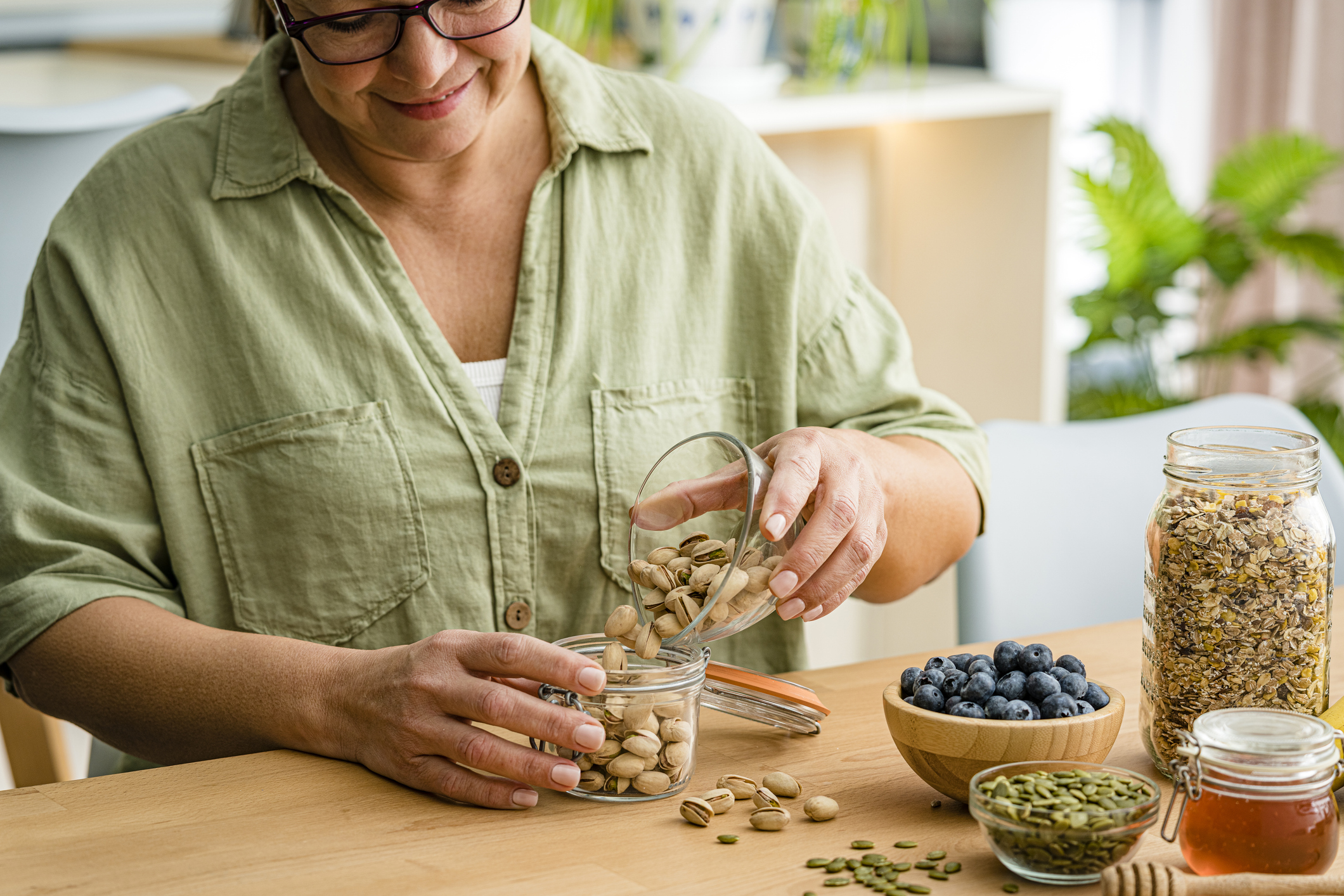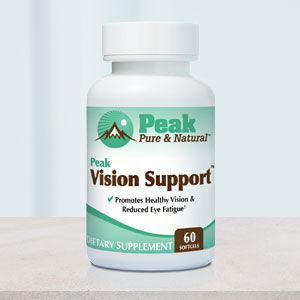Get Easy Health Digest™ in your inbox and don’t miss a thing when you subscribe today. Plus, get the free bonus report, Mother Nature’s Tips, Tricks and Remedies for Cholesterol, Blood Pressure & Blood Sugar as my way of saying welcome to the community!
The nut that defends against age-related vision loss

We hear a lot about the health benefits of nuts — for good reason…
Walnuts, for example, are great for the heart and contain neuroprotective compounds that support brain health and motor function. And almonds have a reputation for being the world’s most nutritious nut, with cholesterol-lowering benefits and more.
Then there’s my favorite nut, the pistachio. This tree nut doesn’t get quite as much attention, and that’s a shame because it also packs a health punch…
A serving of pistachio nut kernels has almost as much protein (5.7 grams) as an egg (6 grams). They’re high in the amino acid arginine, which improves blood flow by boosting nitric oxide. And they’ve been shown to lower cholesterol.
But one of the pistachio’s biggest benefits over other nuts is that it’s the only one that contains the two phytonutrients lutein and zeaxanthin — both of which protect eye health.
Now, research suggests that eating pistachios may be a key factor in protecting against age-related damage that can lead to vision loss…
Pistachios and MPOD
Macular pigment optical density (MPOD) is an essential factor in eye health. Not only does it protect the retina, but it also reduces the risk of age-related macular degeneration (AMD). And that’s all thanks to lutein.
However, even though plenty of foods contain lutein, like bell peppers, parsley, eggs, kale and spinach, most Americans only get between 1 mg and 2 mg of lutein in their diets.
Enter pistachios…
Researchers at the Friedman School of Nutrition Science and Policy at Tufts University selected a group of participants whose baseline intake of lutein was low.
They had them consume two ounces of pistachios per day, equivalent to about 1.6 mg of lutein — enough to double the average daily lutein intake in U.S. adults.
In just six weeks, lutein levels in the participants rapidly increased. But that’s not all…
The researchers observed that consuming two ounces of pistachios daily for 12 weeks resulted in a significant increase in MPOD levels among the participants — an effect that was sustained throughout the 12-week study period.
This suggests that regularly eating pistachios could offer a natural dietary approach to reducing the risk of AMD, a leading cause of blindness in older adults.
“Our findings enhance our understanding of the link between nutrition and eye health,” says Dr. Tammy Scott, a research and clinical neuropsychologist and lead author of the study. “This is especially important as people age and face higher risks of vision impairment.”
Scott adds that pistachios provide a source of healthy fat, potentially enabling the body to absorb the lutein from pistachios better.
Lutein could also protect cognitive function
The lutein found in pistachios filters blue light and acts as an antioxidant in the eye. But that’s not all lutein can do. Beyond supporting eye health, the lutein found in pistachios may also benefit brain function.
“Lutein crosses the blood-brain barrier, where it may help reduce oxidative stress and inflammation,” notes Dr. Elizabeth Johnson, a co-investigator on the study.
As is the case in the eye, lutein selectively accumulates in the brain and may play a role in reducing cognitive decline. Previous studies have suggested that higher lutein levels are linked with better cognitive performance, including memory and processing speed.
Taken together, these findings indicate pistachios are a valuable addition to a diet intended to support overall healthy aging.
It’s never been easier to add pistachios to your diet. You can buy them unshelled or shelled at pretty much any grocery store. Aim for a quarter cup of shelled pistachios a day, which equals the two ounces administered in the study cited above. Eat them as a snack, mix them with your morning oats, cereal or yogurt, or add them to a salad. This way, you’ll be protecting both your brain and your vision as you get older.
Editor’s note: There are perfectly safe and natural ways to decrease your risk of blood clots including the 25-cent vitamin, the nutrient that acts as a natural blood thinner and the powerful herb that helps clear plaque. To discover these and other secrets of long-lived hearts, click here for Hushed Up Natural Heart Cures and Common Misconceptions of Popular Heart Treatments!
Sources:
Pistachios may help improve eye health, new study finds — EurekAlert!
Pistachio consumption increases Macular Pigment Optical Density in healthy adults: a randomized controlled trial — The Journal of Nutrition














